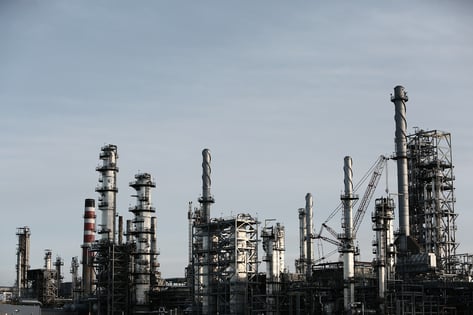Modern enterprise resource planning (ERP) systems are helping businesses around the globe—including your competitors—revolutionize their operations. Manufacturing companies of all sizes are adopting technology that is industry-specific and designed to better manage business processes on an integrated and real-time basis.
Technologically advanced ERP systems are an investment in your company’s operations, efficiency, intelligence, and productivity. Every feature of a modern ERP system ultimately ties back to these improvements, which enable your organization to become more productive, more competitive, and better positioned to meet your customers’ needs.

What is modern ERP?
The ERP system or solution’s origin dates back more than 100 years as economic order quantity (EOQ)—a decision tool for optimizing inventory costs. This eventually morphed into material requirements planning (MRP)—a system for managing manufacturing processes, including planning, scheduling, and inventory control. Over time, additional functionality was added, like finance and CRM, and the individual components were integrated into a single overarching—albeit, difficult to use—system.
An oversimplified definition of ERP is a system or solution that businesses use to manage day-to-day business activities, such as procurement, project management, manufacturing operations, and sales. ERP systems can also introduce automation that replaces manual tasks. The goal of an ERP system is to improve business productivity and agility.
Why are businesses delaying ERP modernization?
There are several misconceptions that hold manufacturing business leaders back from modernization, and from moving their ERP system into the cloud. These misconceptions include the belief that the cloud isn’t secure, that it’s more expensive, that outages occur more frequently, and that a cloud-based ERP is one-size-fits-all. Business leaders are also concerned that an ERP implementation will cause significant disruption to the business, cause the organization to lose focus, or even “break” business processes that the company looks upon as core to its success.
In today’s fast moving, increasingly competitive business environment, manufacturing organizations need complete, enterprise-wide visibility and the ability to collaborate across the business. They need the agility and flexibility to quickly respond to a changing market, grow, and expand to take advantage of new opportunities—ideally, before the competition. Legacy system functionality may have been good enough for previous eras, but no longer serves these evolving requirements. Today’s way of doing business is data-driven and demands proper tools to access, share, and leverage this data in order to make business decisions to not just survive, but also grow your business.
Top gains from investing in modern ERP
Despite some uncertainty about investing in a modern ERP system, leading manufacturers are taking the leap. The productivity gains and process improvements far outweigh the costs. Moreover, modernization can have a strategic impact on business. Without access to a modern ERP system, it’s difficult, often impossible, to support new business models and benefit from the improvements in key performance indicators (KPIs) that come with a successful ERP implementation.
Some of the major benefits of a modern ERP system include its capacity to help organizations:
Improve user adoption—You can’t achieve return on investment (ROI) if your employees can’t use your ERP system. Updated systems are more user-friendly, encouraging employees to seek out data and integrate it into decision-making.
Make better business decisions—Enterprise analytics enable businesses to connect data across business silos and drill down on overall results and KPIs to functional contributors. With modern ERP systems, business can grow the “analytics mindset” within their organization to increase data-driven decision-making for improving operational effectiveness. And by aligning enterprise KPIs with department objectives, teams and individuals can gain a clearer picture of how their priorities impact the overall business performance.
Attract and retain talent—A twofold challenge for manufacturers today is the retirement of employees with years of “tribal” knowledge and manufacturing expertise, combined with a new generation of workers who are less inclined to embark on manufacturing careers. Without these resources, your company can’t exist. This new generation of digital “natives” demand technology that is user-friendly and supports how they like to work. They want software that mirrors the look and feel of applications they use in their day-to-day lives and supports immediate access to data and collaboration. For many manufacturers, modern ERP systems have been a key differentiator when targeting this generation of workers.
Break down business silos and increase collaboration—By extending ERP capabilities beyond operations with a modern platform, manufacturers can increase collaboration across functional areas for improved workflows and increased productivity. As teams leverage improved communications and cross-functional data, they can reduce cycle times and increase accuracy. Native social tools within ERP systems allow teams to share rich information across regions and time zones using devices that support work wherever and whenever needed.
Improve key performance metrics—Manufacturing organizations on the latest ERP versions see more significant benefits in metrics such as complete and on-time delivery, inventory turns, internal schedule compliance, and reductions in operational costs. These performance improvements have a direct impact on the bottom line, which may even be enough to pay for the ERP system.
Utilize emerging technology—Analytics, mobility, cloud, partner networks, and the internet of things (IoT) are becoming table stakes in the modern manufacturing environment. Organizations are growing more sophisticated in utilizing them. For example, using IoT and analytics together (such as through applying analytics to inexpensive sensors on machinery) can help to support predictive maintenance and enable bigger profits in new service models. Outdated ERP systems can’t support this innovation.
Modern ERP enables continuous growth
The manufacturing industry is changing. New business models, products, locations, and regulatory concerns must be supported, and old technology may not be able to support your business in the new environment. Modern ERP software vendors are continuously adding new and industry-specific best practices to their solutions that will ensure competitiveness. This will give your organization the flexibility to support growth as your business changes through the years.
Learn more about how ICCG helps our manufacturing customers. Questions about how ICCG can help you? Let us know here.

